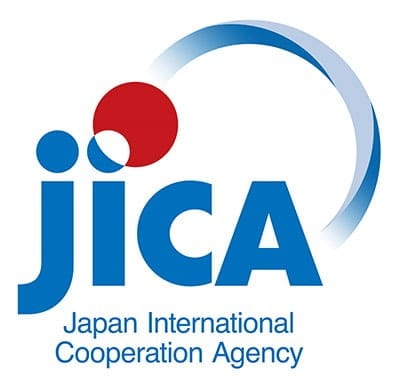Bridges: With business ties continuing to grow between Japan and Indonesia, what new opportunities do you see for JICA Indonesia to help facilitate trade between the two countries?
Takehiro: JICA Indonesia is committed to promoting business ties between Japan and Indonesia. To facilitate economic activities between the two countries, JICA Indonesia dispatches Investment Promotion Advisors, Industrial Development Advisors, and Intellectual Property Rights Advisors.
These advisors provide technical advice to Japanese companies and help develop human resources in relevant institutions in Indonesia.
Additionally, JICA Indonesia strengthens institutions and human resources in the trade sector through initiatives such as Strengthening the Functions of Export Promotion Institution, Establishing Indonesia Export Training Center, Promoting the Utilization of IJEPA: Indonesia Japan Economic Partnership Agreement, and Trade Sector Development Advisor.
All these initiatives contribute to the promotion of trade for both countries.
Which industries continue to grow in Indonesia (fisheries, maritime, transport, energy)? What role is JICA playing in these and other key industries?
Industries across various sectors such as manufacturing, mining, energy, agriculture, fisheries, marine and transportation are expected to experience growth.
JICA is committed to supporting the development of infrastructure and human resources, as well as improving government systems and organizations to sustain these industries.
The development of renewable energy, energy transition, and urban environment improvement are among the areas that require urgent attention.
JICA is committed to supporting the development of infrastructure and human resources, as well as improving government systems and organizations to sustain these industries.
Yasui Takehiro, Chief Representative of JICA Indonesia
JICA has a crucial role to play in improving urban transportation such as MRT, the expansion of power transmission networks is becoming necessary for the development of renewable energy power plants, waste water treatment facilities, and waste incineration facilities that are almost non-existent in this country. JICA will also support the development of fishery facilities such as fishing ports, universities and studying abroad.
Indonesia is a promising yet challenging market. What ‘headaches’ are Japanese companies facing in Indonesia and how is JICA helping?
Japan is the second-largest foreign direct investor in Indonesia, with nearly 2,000 Japanese companies operating throughout the country.
These companies employ about 7.2 million Indonesians, contributing to roughly 8.5% of Indonesia’s GDP and close to 25% of its exports. Despite their long-term plan to expand their businesses in Indonesia, Japanese companies are facing several problems such as limitations on business licenses, a minimum capital requirement of IDR 10 billion, strict import policies including the Commodity Balance System, tax deductions always accompanied by tax investigations, and other regulations for foreign companies.
These regulatory changes often make it difficult for them to achieve their expansion plans.
To support both their businesses and the development of Indonesia, JICA provides expert support to Indonesian ministries. We coordinate meetings between related ministries and Japanese companies or directly support Japanese companies to conduct surveys in Indonesia using our wide range of networks.
What are your personal insights on living and working in Indonesia? What advice would you give a recent arrival to Indonesia?
Indonesia has grown more confident in its country in recent years, experiencing continued economic growth during the past 20 years of democratization. Indonesia Vision 2045 aims to become a world economic power. It is important to note that viewing Indonesia as a poor developing country is not valid, as we are equal partners.
JICA Indonesia is committed to promoting business ties between Japan and Indonesia.
When moving forward, it is essential to start and make adjustments along the way, even if the future is uncertain. Speed is emphasized, but it is also important to keep in mind that delays or major corrections may be necessary and can take time. We need to get used to taking a dynamic approach.
What activities does JICA Indonesia have planned for 2024?
We aim to continue endorsing projects that represent the strong Japan-Indonesia relationship. We will collaborate on urgent issues such as energy transition and urban environment, and prioritize promoting maritime and disaster prevention cooperation.
This year marks a change in government, and we will focus on partnering with the new administration’s priority measures.




